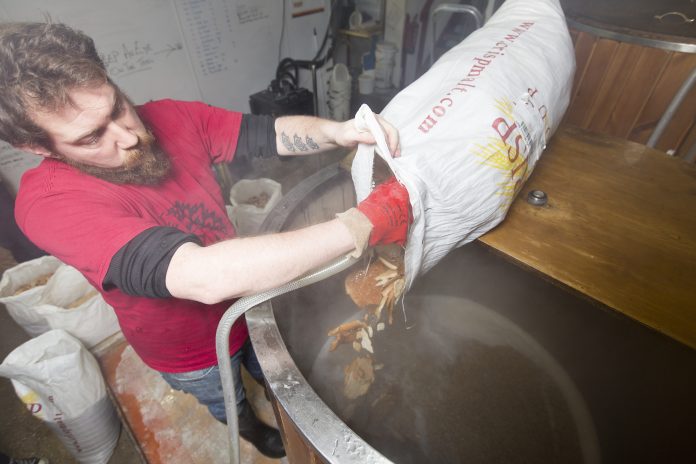One of the most frequently wasted foodstuffs is bread. As a relatively cheap product with a short shelf life, bread is chucked out at an astonishing rate, as supermarket surplus as well as in the home. In fact, an incredible 44% of all bread produced in the UK is thrown away. However you look at it – taking into account the record numbers of people short of food, biological nutrients being lost from the system or from pure economics – this just doesn’t stack up.
The startup Toast Ale have an unusual and appealing idea of how to combat this problem – by brewing beer. It’s a relatively simple process, so much so that the first batch of Toast Ale was arranged in just 10 days by Founder Tristram Stuart and his team. The company start by collecting surplus bread from delis, bakeries and sandwich makers. It’s then incorporated into the brewing process with malted barley, hops, yeast and water. It doesn’t take any special technology or space-age methods, but this simple switch can replace around a third of the malted barley used for beer.
Whilst this initiative surfs the current trends of combatting food waste and trendy craft beer, it’s far from novelty. The fairly straightforward process offers numerous benefits, namely using up and adding value to bread that would otherwise be wasted, whist displacing other resource inputs. What’s more, Toast aren’t asking brewers to reinvent the wheel, as this isn’t actually a new practice. The oldest surviving beer recipe, documented by the ancient Mesopotamians, features bread as a key ingredient.
By actively sharing the recipe for their pale ale, the startup provides the basis for replication by other breweries in collaboration with Toast, adapting to local bread available and brewing traditions. There’s an emerging enthusiasm, going beyond UK craft-beer hotspots like London and Bristol, to Iceland, South Africa and the USA. Tristram Stuart says that brewers he’s spoken to are seizing the opportunity to utilise this new and interesting ingredient to experiment with new recipes and flavours.
Whereas bread wastage makes little economic sense, Tristram says that “there’s sound business logic behind Toast, as there’s a good markup from grain to bread to beer”. But it’s a firm belief of the founder that this money shouldn’t disappear to shareholders, but instead should continue circulating to further the cause. As a result, 100% of the profits go to Feedback, an organisation that works to address food waste issues across all stages of our food system, from farm surplus caused by cosmetic standards to legislation preventing waste being used as feed.
Toast Ale is a good example of the philosophy of Feedback. Encouraging people to envisage and take steps towards a more circular economy “should start not with complaining, but by showing a better option”. So the team behind Toast have created a brand that is fun and vibrant, and “tells a story with that first gulp”.
Analysis:
I was especially inspired by Toast Ale, in large part because the business revolves around food waste (a key issue on campus, which, in terms of waste, may have some of the greatest room for improvement). This business model clearly illustrates the “connecting the dots” which makes closed loops successful; it successfully identifies one key waste point, and one key production point, and brings them together to create all-around benefit.




